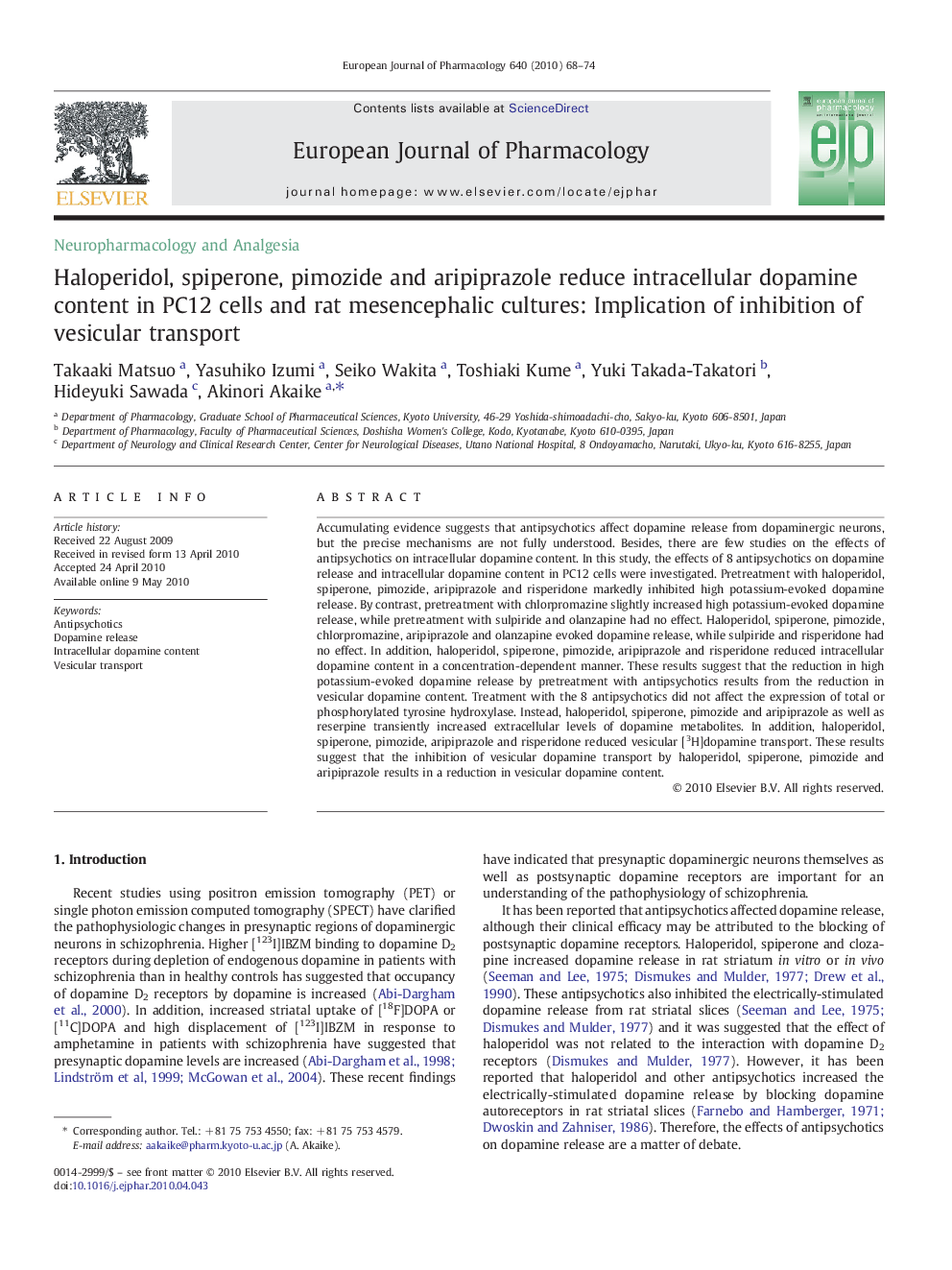| Article ID | Journal | Published Year | Pages | File Type |
|---|---|---|---|---|
| 2533361 | European Journal of Pharmacology | 2010 | 7 Pages |
Accumulating evidence suggests that antipsychotics affect dopamine release from dopaminergic neurons, but the precise mechanisms are not fully understood. Besides, there are few studies on the effects of antipsychotics on intracellular dopamine content. In this study, the effects of 8 antipsychotics on dopamine release and intracellular dopamine content in PC12 cells were investigated. Pretreatment with haloperidol, spiperone, pimozide, aripiprazole and risperidone markedly inhibited high potassium-evoked dopamine release. By contrast, pretreatment with chlorpromazine slightly increased high potassium-evoked dopamine release, while pretreatment with sulpiride and olanzapine had no effect. Haloperidol, spiperone, pimozide, chlorpromazine, aripiprazole and olanzapine evoked dopamine release, while sulpiride and risperidone had no effect. In addition, haloperidol, spiperone, pimozide, aripiprazole and risperidone reduced intracellular dopamine content in a concentration-dependent manner. These results suggest that the reduction in high potassium-evoked dopamine release by pretreatment with antipsychotics results from the reduction in vesicular dopamine content. Treatment with the 8 antipsychotics did not affect the expression of total or phosphorylated tyrosine hydroxylase. Instead, haloperidol, spiperone, pimozide and aripiprazole as well as reserpine transiently increased extracellular levels of dopamine metabolites. In addition, haloperidol, spiperone, pimozide, aripiprazole and risperidone reduced vesicular [3H]dopamine transport. These results suggest that the inhibition of vesicular dopamine transport by haloperidol, spiperone, pimozide and aripiprazole results in a reduction in vesicular dopamine content.
